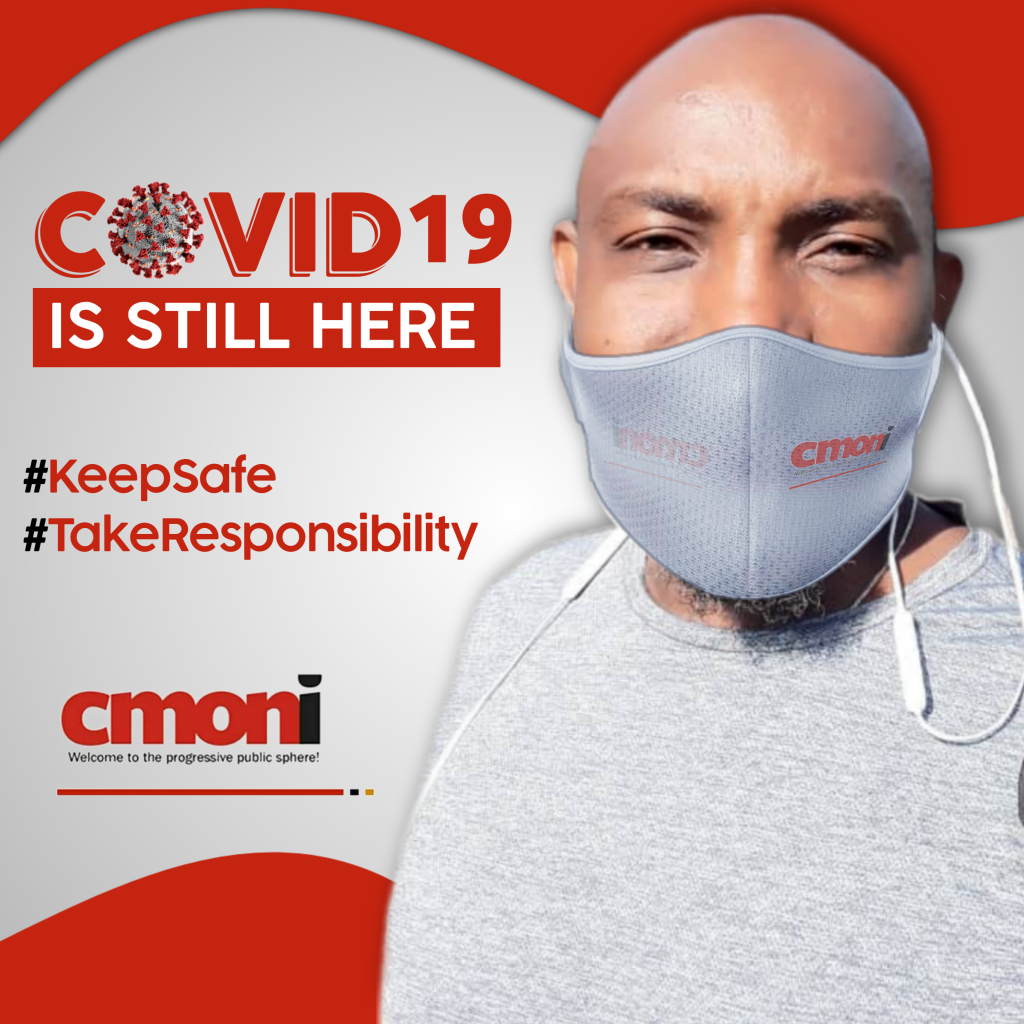The hardworking and resilient spirit that once defined a Nigerian youth is gradually fading away. Excelling in all circumstances was deeply entrenched in the psyche of Nigerian youths. So, the popular platitude, “Naija no dey carry last,” was absolutely deserving. Unfortunately, this attribute seems to be declining as the dependence on giveaways for survival, or as a side hustle, is becoming a norm amongst the youths. The man who just withdrew money from the ATM is engaged by young boys, who tell him, “Oga, Abeg show us love.” The woman walking in the street is approached by area boys telling her, “Madam, find something for boys nah.” The stories of corporate beggars who rely on giveaway from their unsuspecting victims have become a recurring decimal in the country. Recently, this unruly behaviour has metamorphosed from just an offline affair and has now been transported into the digital space. The social media is breeding a new generation of youthful panhandlers who ask strangers especially celebrities for giveaway to meet immediate and other needs. Merriam-Webster Dictionary defines giveaway as something given away free.[1] The youths inclination towards online freebies is regrettably skyrocketing since it is done with relative anonymity, thereby eliminating or reducing the disgrace inherent in the modified public begging.
The spike in financial and material giveaways on facebook, twitter, instagram, and other social media platforms is alarming. Companies, celebrities, influencers, affluent individuals, political aspirants, and public figures now utilize various forms of giveaways to reach their preferred audience and increase their popularity. However, there are opinions that giveaways aren’t necessarily born out of compassion towards the plight of the people, but are acts of disguised tokenism. The Cambridge Business English Dictionary defines tokenism as an act of doing something only to show that you are following rules or doing what is expected or seen to be fair and not because you really believe it is the right thing to do.[2] Many celebrities have complained about the incessant demands from their fans for one financial assistance or another. Sometimes, when these demands are not met, palpable verbal abuse and virtual fisticuffs usually ensue due to the perceived celebrity’s misanthropy and lack of empathy by not obliging the requests. Hence, some celebrities and companies, yielding to pressure or caressing their popularity, have rendered financial and non-financial help, not because they deemed it necessary but because they want to appease their audience and be in their good books. The adage “a beggar has no choice,” does not apply to these youths. Not only are they specific in their demands, they also have an absurd mentality of entitlement which is evident when one declines their demands.
While there is nothing particularly wrong with one receiving giveaways, the reliance of the youths on freebies for financial emancipation and the consequences of this wrong ideology should worry every well-meaning Nigerian. A proper understanding of the factors which have amplified this distasteful attitude among our youths is key towards curtailing this rising menace. Youths reliance on giveaways has been a useful tool for the political class who deliberately perpetuate economic hardship while looting the nation’s wealth, only to allow the masses to scramble and survive on crumbs. Going by World Bank statistics, 40 percent of the total population, or almost 83 million people, live below the country’s poverty line of 137,430 naira per year.[3] On February 14, 2019, The Cable, quoting Brookings institution, reported that 91.16 million Nigerians are living below a dollar a year, adding that six people fall into poverty every minute.[4] Having felt the scourge of hunger and poverty, many youths are left with no option than to be answerable to politicians who perform the common ritual of giveaways in monetary or non-monetary forms, a condition that could be likened to Stockholm syndrome. Little wonder why this act is usually amplified during elections in the country. A corrupt politician who has awfully failed in serving his people would capriciously become the people’s favourite once he hands out some cash or other material items to them. Alas poverty! After elections, these politicians disappear into thin air while the people continue to wallow in abject poverty. Having tested the crumbs from these selfish politicians, some youths would resort to social media to engage them and demand for more crumbs. Economic misery is therefore a key enabler of these social media giveaways. One could say that unscrupulous social media giveaways have become the norm owing to the successful antecedents of political giveaways.[5]
The moral decadence in the country has contributed to this sad development. We are gradually losing our cultural and moral values which helped create a sane society. Emphasis is now laid on making money regardless of the source. The desperation in the hearts of the youths to get money has propelled many to shamelessly demand for giveaways at any given opportunity. Before now, the thought of begging and being at someone’s mercy for survival, and the shame inherent in it, spurred the older generation into hardwork. Not that there were no beggars during that time, but there was no pride in begging as one could see the shame and guilt written all over the beggars’ faces. Nowadays, it seems like the economic meltdown in the country has melted away the shame of begging.
Aside the lack of shame, many youths are driven by an insatiable desire for money. Many persons jostling for giveaways on social media aren’t financially broke, rather they are discontent humans. How could someone who has more than half a million naira be hustling for one thousand naira giveaway? Some dissatisfied youths have taken the pursuance of giveaways as a side hustle just because of their discontentment.
This giveaway trend is not unconnected to the rate of unemployment in the country. According to a report on Bloomberg, Nigeria’s unemployment rate increased to 33.3% in the fourth quarter of 2020.[6] Owing to unemployment, many youths including graduates, have indulged in dubious and demeaning acts just to put food on their table. This is one of the reasons why cybercrime is escalating in the country. Those who couldn’t muster up courage to indulge in fraud, have resorted to begging and depending on giveaways.
The flamboyant display of most celebrities and wealthy Nigerians on social media has magnified this trend. These celebrities, having created a faux impression that their lives are beds of roses, have attracted the begging hands of some expectant youths. A popular proverb advises that, “if begging should unfortunately be thy lot, knock at the large gates only.” This is perhaps why celebrities, socialites, politicians, and well-known personalities are targets of these panhandling and desperately discontent youths tracking giveaways on every social media platform.
However, it is also important to note that dependence on giveaways does not only revolve around the circles of the youths. This medicancy attitude took a worrisome dimension when the Nigerian government via the verified twitter handle of the Ministry of Finance Budget and National Planning, begged the founder of Tesla, Elon Musk, for a giveaway of “between 100 and 500 ventilators” to assist in the growing number of coronavirus cases in the country.[7] The tweet elicited criticisms before it was later deleted. If the unfavourable conditions which resulted from coronavirus pandemic could make a country beg and rely on giveaway, how much more the youths who have been severely affected by the unpropitious conditions prevalent in the country?
This giveaway trend is not without its consequences. There has been an obvious rise in cases of cyberbullying on social media. Many persons have shared their experiences of verbal abuses and threats meted out to them for failing to heed to several demands for giveaways. The reputation of the Nigerian youths is also at risk as this giveaway ideology is affecting other country’s perception of the Nigerian youths. This is because the act is also being perpetrated by Nigerians even in the international scene. Also, since social media giveaway posts are usually accompanied by various persons posting their account details, some fraudsters have seized this opportunity to scam people of their hard-earned savings. Reliance on giveaways has prompted some youths to be indolent. Many have fallen victims of kidnapping and sexual abuse in the hands of criminals who use giveaways as bait to lure them. Generally, this giveaway ideology among our youth could lead to the development of inferiority complex, loss of self respect and dignity, increased mindset of poverty, loss of self-confidence, and loss of moral values. There is no gainsaying that many Nigerians have received genuine philanthropic gestures via giveaways. Even those with terrible health conditions have had their medical bills cleared courtesy of giveaway. Sadly, the actions of some selfish and discontent youths, who have turned this into their side hustle while spewing concocted lies to attract empathy, have made it really difficult for good Nigerians to even help those who really need it.
Remedying this situation would require the effort of all and sundry. The government must take bold steps towards tackling economic hardship and unemployment. If our living conditions are ameliorated, many youths will conduct themselves better. Government must act beyond empowering youths with wheelbarrows and pittance. Youth empowerment programs should be substantial and adequate for financial liberation. Our politicians should be reminded of the need for proper service to their people. Parents, schools, traditional and religious leaders should help to instill the right cultural and moral values into our youths. The youths must also be properly oriented and reoriented on the benefits of contentment and the adverse effects of discontentment. Generous Nigerians should reduce the level of giveaway on social media and deploy other avenues such that people who really need help can be reached.
In conclusion, issues pertaining the youths should be taken seriously because they are the leaders of tomorrow. Hence, efforts must be made to ensure that dependence on giveaway and begging ceases to be a norm among our youths.
References
1. https://www.merriam-webster.com/dictionary/giveaway
2. https://dictionary.cambridge.org/dictionary/english/tokenism
4. https://www.thecable.ng/just-in-91-million-nigerians-now-living-in-extreme-poverty/amp
5. https://m.guardian.ng/life/life-features/is-cyber-begging-becoming-a-culture/
Michael Ogbonnaya is a graduate of mechanical engineering from the Federal University of Technology Owerri. He is a creative writer who tries to tackle societal problems with his writing and can be reached via elevatedmikey@gmail.com







